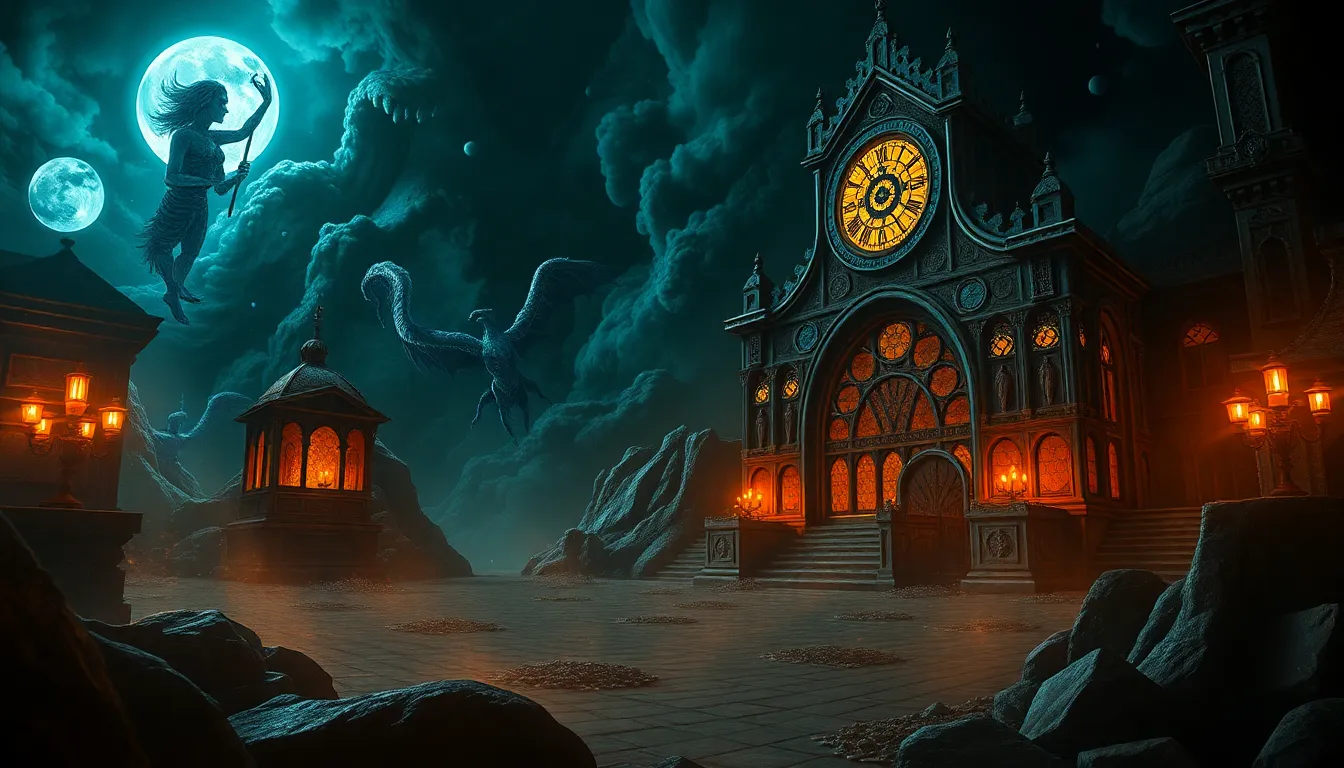The Mythical Origins of Our Greatest Cultural Heroes
Introduction: Understanding Cultural Heroes and Their Mythical Roots
Cultural heroes are figures that embody the values, ideals, and struggles of a society. They are often larger than life, showcasing extraordinary feats that inspire admiration and emulation. From ancient legends to modern-day icons, these heroes play a crucial role in shaping cultural identity and collective memory. The purpose of this article is to explore the mythical origins of cultural heroes, examining how mythology informs our understanding of heroism and its significance in various societies.
The Role of Mythology in Human History
Mythology has been an integral part of human history, influencing cultures across the globe. From the epic tales of gods and demigods in ancient civilizations to the folklore of local communities, myths serve multiple purposes:
- Preservation of Culture: Myths encapsulate the values, beliefs, and traditions of a society.
- Social Cohesion: Shared myths foster a sense of belonging and collective identity.
- Explaining the Unknown: Myths provide narratives for understanding natural phenomena and human experiences.
Through these narratives, mythology shapes social values and norms, offering a framework for understanding heroism and the qualities that define a hero.
Common Archetypes: The Hero’s Journey
Joseph Campbell’s concept of the Hero’s Journey describes a universal pattern found in many cultures’ narratives. This journey typically involves several key stages:
- The Call to Adventure: The hero is invited to leave their ordinary world.
- Crossing the Threshold: The hero enters a new, unfamiliar world.
- Trials and Challenges: The hero faces obstacles that test their resolve.
- Transformation: The hero undergoes significant personal growth.
- The Return: The hero returns to their ordinary world, often bringing new wisdom or gifts.
Many cultural heroes, such as Odysseus in Greek mythology or Harry Potter in modern literature, exemplify these archetypes, reflecting common human experiences and aspirations.
Ancient Civilizations and Their Legendary Figures
Ancient cultures produced a wealth of legendary figures whose stories reflect the values and beliefs of their societies. Notable examples include:
- Gilgamesh: The Sumerian king who embarks on a quest for immortality, representing the human struggle against mortality.
- Hercules: A Greek hero known for his strength and heroic deeds, embodying the ideals of bravery and perseverance.
- Achilles: A central figure in the Iliad, symbolizing the complexities of heroism, honor, and fate.
These figures not only entertained but also conveyed moral lessons, serving as embodiments of the cultures from which they emerged. Over time, these myths transitioned into modern storytelling, influencing countless narratives in literature and film.
Folklore and Mythical Heroes: From Local Legends to Global Icons
Folklore plays a vital role in the creation of local heroes, whose stories resonate with specific communities. Case studies of legendary figures include:
- Robin Hood: The English outlaw who “robs from the rich and gives to the poor,” symbolizing social justice and resistance against tyranny.
- King Arthur: The legendary British leader whose tales of bravery and chivalry have inspired countless retellings.
These characters have evolved over the centuries, finding new life in contemporary culture through adaptations in films, books, and television shows, demonstrating the enduring nature of these myths.
Modern Myth-Making: Cultural Heroes in the 21st Century
In the 21st century, the concept of cultural heroes has expanded to include contemporary figures found in literature, film, and media. Modern cultural icons, such as:
- Superheroes: Characters like Spider-Man and Wonder Woman represent ideals of bravery and justice.
- Activists: Figures such as Greta Thunberg and Malala Yousafzai challenge societal norms and advocate for change.
These modern heroes draw from mythical origins, capturing the imagination of audiences and influencing social movements, highlighting the power of storytelling in shaping public consciousness.
Cultural Heroes as Symbols of Resistance and Change
Cultural heroes often emerge as symbols of resistance against societal injustices. Figures like Nelson Mandela and Malala Yousafzai have become modern mythical heroes, representing courage and the fight for equality. Their stories serve as powerful narratives that:
- Challenge oppressive systems
- Inspire movements for social justice
- Promote hope and resilience in the face of adversity
Through their struggles and triumphs, these heroes illustrate the transformative power of storytelling in promoting social change.
The Psychological Appeal of Mythical Heroes
Our attraction to hero narratives can be explained through various psychological theories. The hero archetype resonates deeply with human experience, serving as a source of inspiration and aspiration. Key reasons for this appeal include:
- Identification: Individuals often see aspects of themselves in heroes, fostering a sense of connection.
- Hope: Hero narratives provide hope for overcoming challenges and achieving greatness.
- Personal Growth: Heroes often undergo transformations that encourage viewers to pursue their own journeys of self-improvement.
This psychological connection to heroes shapes personal identity and influences societal ideals.
Critiques of Heroism: Deconstructing the Myth
While hero narratives are often celebrated, it is essential to examine their complexities. Flawed heroes and anti-heroes challenge traditional notions of heroism, prompting critical perspectives that reshape our understanding. Key critiques include:
- Flaws and Failings: Many heroes are depicted with significant flaws that complicate their narratives.
- Ethical Ambiguity: Anti-heroes often operate outside conventional moral boundaries, raising questions about what makes a hero.
These critiques are relevant in modern cultural discourse, encouraging a more nuanced understanding of heroism that acknowledges both triumphs and shortcomings.
Conclusion
The mythical origins of cultural heroes reveal the deep connections between storytelling, identity, and societal values. From ancient legends to contemporary icons, these figures continue to inspire and provoke thought, shaping our understanding of heroism and its role in society. As we navigate the complexities of modern life, the stories of cultural heroes remind us of the enduring power of myth and the potential for individuals to enact change.



